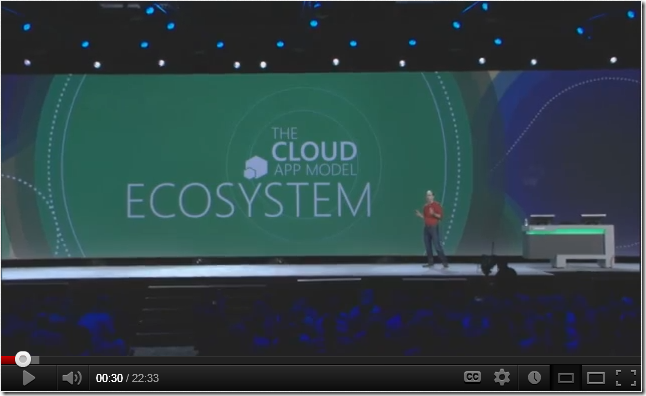SharePoint Apps and Windows Azure
Last Monday I had an opportunity to present as part of the keynote of this year’s SharePoint Conference. My segment of the keynote covered the new SharePoint Cloud App Model we are introducing as part of the upcoming SharePoint 2013 and Office 365 releases. This new app model for SharePoint is additive to the full trust solutions developers write today, and is built around three core tenants:
- Simplifying the development model and making it consistent between the on-premises version of SharePoint and SharePoint Online provided with Office 365.
- Making the execution model loosely coupled – and enabling developers to build apps and write code that can run outside of the core SharePoint service. This makes it easy to deploy SharePoint apps using Windows Azure, and avoid having to worry about breaking SharePoint and the apps within it when something is upgraded. This new loosely coupled model also enables developers to write SharePoint applications that can leverage the full capabilities of the .NET Framework – including ASP.NET Web Forms 4.5, ASP.NET MVC 4, ASP.NET Web API, EF 5, Async, and more.
- Implementing this loosely coupled model using standard web protocols – like OAuth, JSON, and REST APIs – that enable developers to re-use skills and tools, and easily integrate SharePoint with Web and Mobile application architectures.
A video of my talk + demos is now available to watch online:
In the talk I walked through building an app from scratch – it showed off how easy it is to build solutions using new SharePoint application, and highlighted a web + workflow + mobile scenario that integrates SharePoint with code hosted on Windows Azure (all built using Visual Studio 2012 and ASP.NET 4.5 – including MVC and Web API).
The new SharePoint Cloud App Model is something that I think is pretty exciting, and it is going to make it a lot easier to build SharePoint apps using the full power of both Windows Azure and the .NET Framework. Using Windows Azure to easily extend SaaS based solutions like Office 365 is also a really natural fit and one that is going to offer a bunch of great developer opportunities.
Hope this helps,
Scott
P.S. In addition to blogging, I am also now using Twitter for quick updates and to share links. Follow me at: twitter.com/scottgu
